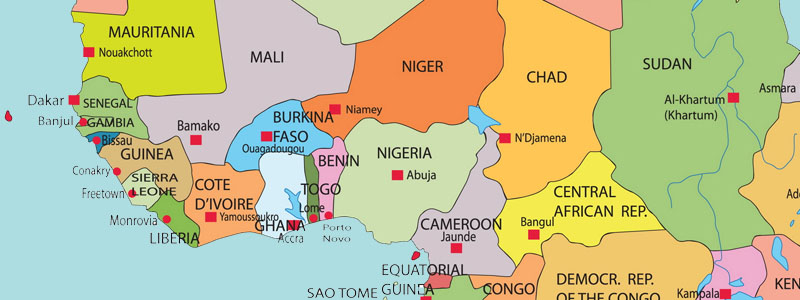
Ebola hampers food imports by West Africa; food security under threat
 The outbreak of the Ebola virus disease (EVD) in West Africa (Guinea, Liberia and Sierra Leone) may lead to a food crisis soon due to disruption in intra-trade and cereal imports by the three countries.
According to the World Health Organisation (WHO), the deadly EVD spreads through human-to-human transmission and is difficult to control. The chances of survival is a bleak 10-47% and there are concerns that it may have spread to several other countries across the world.
To prevent a further outbreak, the WHO and the governments of Guinea, Liberia and Sierra Leone have declared emergencies which include the quarantine zones and restrictions on the movement of people at borders. Several flights and transport into the affected countries have been suspended and sea-port activity has declined significantly.
These developments now threaten food security in the region, says the UN’s Food and Agriculture Organisation (FAO). All the three countries are heavily dependent on food imports with people in some places spending almost 80% of their income only on food.
The outbreak of the Ebola virus disease (EVD) in West Africa (Guinea, Liberia and Sierra Leone) may lead to a food crisis soon due to disruption in intra-trade and cereal imports by the three countries.
According to the World Health Organisation (WHO), the deadly EVD spreads through human-to-human transmission and is difficult to control. The chances of survival is a bleak 10-47% and there are concerns that it may have spread to several other countries across the world.
To prevent a further outbreak, the WHO and the governments of Guinea, Liberia and Sierra Leone have declared emergencies which include the quarantine zones and restrictions on the movement of people at borders. Several flights and transport into the affected countries have been suspended and sea-port activity has declined significantly.
These developments now threaten food security in the region, says the UN’s Food and Agriculture Organisation (FAO). All the three countries are heavily dependent on food imports with people in some places spending almost 80% of their income only on food.
 Source - FAO
Source - FAOThis article was published on September 4, 2014






 to success.
to success.